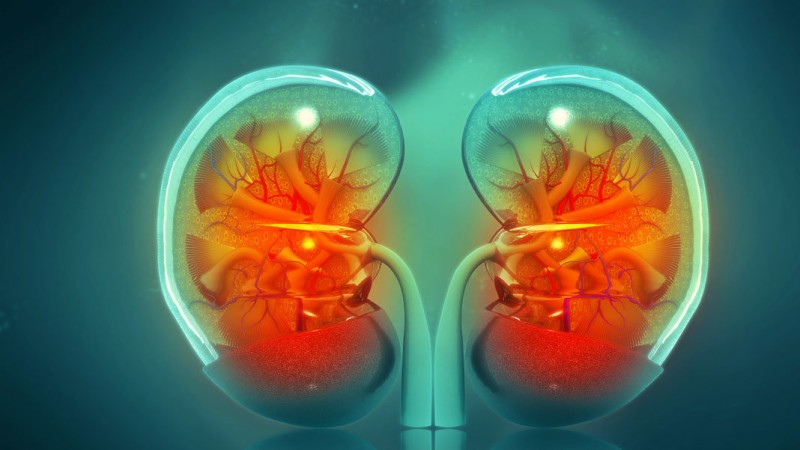
The kidneys are essential organs that play a critical role in filtering waste from the blood, maintaining electrolyte balance, and regulating blood pressure. However, they are often vulnerable to diseases, particularly during certain seasons or due to lifestyle factors. In this article, we will explore the best ways to protect your kidneys from diseases and maintain their health.
Understanding Kidney Health
Kidneys are vital for removing toxins and excess fluids from the body. They also help regulate blood pressure, produce red blood cells, and maintain bone health. Any impairment in kidney function can lead to serious health issues, including chronic kidney disease (CKD) and kidney failure.
Factors Affecting Kidney Health
Seasonal Changes: The transition between seasons, especially during the monsoon, can affect kidney health. Increased humidity, temperature fluctuations, and the risk of water contamination can pose threats to kidney function.
Infections: Bacterial infections, such as those caused by E. coli, can lead to urinary tract infections (UTIs) and subsequently impact kidney health. These infections can cause inflammation and damage to the kidneys if left untreated.
Chronic Conditions: Conditions such as high blood pressure (hypertension) and diabetes are major risk factors for kidney disease. They can cause long-term damage to the kidneys, leading to chronic kidney disease.
Diet and Lifestyle: Poor dietary habits, lack of exercise, smoking, and excessive use of painkillers can also negatively impact kidney health.
Effective Remedies to Protect Your Kidneys
1. Maintain a Healthy Diet
Stay Hydrated: Drink plenty of water throughout the day to help your kidneys flush out toxins and maintain proper hydration levels. Aim for at least 8-10 glasses of water daily.
Limit Salt Intake: Excessive salt can increase blood pressure and strain the kidneys. Use herbs and spices to flavor your food instead of salt.
Avoid Processed Foods: Processed and packaged foods often contain high levels of sodium and other preservatives that can harm kidney function. Opt for fresh, whole foods.
2. Regular Exercise
Engage in Physical Activity: Regular exercise helps maintain a healthy weight, control blood pressure, and improve overall kidney function. Aim for at least 150 minutes of moderate exercise per week, such as brisk walking, cycling, or swimming.
3. Control Blood Pressure and Blood Sugar Levels
Monitor Blood Pressure: Keep your blood pressure within the recommended range (below 140/90 mmHg) to reduce the risk of kidney damage. Regular check-ups with your healthcare provider can help manage hypertension.
Manage Diabetes: If you have diabetes, control your blood sugar levels through diet, medication, and regular monitoring. High blood sugar levels can damage the kidneys over time.
4. Avoid Harmful Habits
Quit Smoking: Smoking can impair blood flow to the kidneys and contribute to kidney disease. Seek support to quit smoking and improve overall health.
Limit Alcohol Consumption: Excessive alcohol intake can lead to kidney damage. Drink alcohol in moderation, if at all.
5. Use Medications Wisely
Avoid Overuse of Painkillers: Frequent use of nonsteroidal anti-inflammatory drugs (NSAIDs) can harm the kidneys. Use medications as prescribed and consult your doctor before taking any new drugs.
6. Stress Management
Reduce Stress: Chronic stress can negatively impact kidney health by increasing blood pressure and causing other health issues. Practice stress-reducing techniques such as meditation, deep breathing exercises, and relaxation techniques.
7. Incorporate Yoga and Mindfulness
Practice Yoga: Regular yoga practice can enhance overall well-being, improve blood circulation, and help manage stress. Incorporate yoga poses that promote kidney health, such as the cat-cow stretch and forward bend.
Mindfulness and Relaxation: Engage in mindfulness practices to reduce stress and improve mental health, which can positively impact kidney function.
Protecting your kidneys involves a combination of healthy lifestyle choices, regular monitoring of chronic conditions, and preventive measures. By adopting the remedies outlined above, you can support kidney health and reduce the risk of kidney diseases. Remember to consult with healthcare professionals for personalized advice and regular check-ups to ensure your kidneys remain healthy and functional.
Taking proactive steps to maintain kidney health not only enhances your overall well-being but also contributes to a healthier and more active life.
How to Make Your Lips Look Like Rose Petals: Just Follow These Easy Tricks
India and Singapore Strengthen Collaboration in Future-Focused Sectors
If Tea Spills or You Touch a Hot Pan, Follow These Immediate Measures for Relief